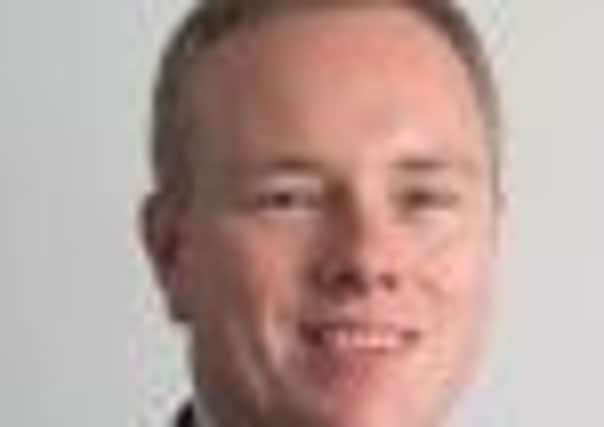Region has to rise to challenge of renewables


The Abu Dhabi government is building Masdar in a Middle East desert in a bid to become a leading source of knowledge in renewable energy.
“These people, who have 100 years of existing oil and gas reserves, think this is the future and they need to be focused on it,” said Mr Goodfellow, a partner at Addleshaw Goddard in Leeds. “Their long-term view is there is no alternative.”
Advertisement
Hide AdAdvertisement
Hide AdPlanners hope that Masdar, meaning ‘source’ in Arabic, will be a high-density, pedestrian-friendly city to research, develop and showcase current and future renewable energy and clean technologies.
Mr Goodfellow, an expert in energy and infrastructure, said Yorkshire as a region cannot go “toe to toe” against Masdar.
“We cannot build a mock city. The money doesn’t exist,” he said. “What we can do is use the natural environment we have around us.”
Mr Goodfellow said Yorkshire should have an advantage in anaerobic digestion, given the large number of food manufacturing and processing factories in the region.
Advertisement
Hide AdAdvertisement
Hide AdHe added that Yorkshire should also benefit from its plentiful supply of raw materials and natural resources like water, which powered the last industrial revolution.
Yorkshire’s industrial heritage has left it with lots of old buildings, he said; these can be retrofitted with energy efficient technologies.
Mr Goodfellow was speaking at an event in Leeds designed to help companies and community groups attract investment in renewables projects.
The lawyer, an adviser to the Leeds City Region’s local enterprise partnership, urged project developers to contact him if they are unable to find finance for schemes.
Advertisement
Hide AdAdvertisement
Hide AdThe public-private partnership is gathering a list of projects to take to investors.
Mr Goodfellow described project finance as “very constrained” this year and said local authorities have a “paramount” role in bringing schemes to fruition by providing contracts to developers.
For example, a local authority can provide a longer-term food waste contract than a supermarket, he said.
CO2 Sense, the not-for-profit environmental consultancy, hosted the event at The Queens hotel in Leeds on Thursday.
Advertisement
Hide AdAdvertisement
Hide AdSpeakers included Alasdair Grainger, head of feed-in tariffs (FITs) at the Department of Energy and Climate Change.
FITs provide index-linked payments in return for electricity generated through small-scale renewable energy sources.
Ministers have controversially reduced payments for solar energy, causing financial hardship for businesses in the sector.
Mr Grainger said: “We fought to keep the scheme. But in order to keep the scheme open we have had to make some quite difficult decisions. It’s still open for business but it’s in a different environment.”
Advertisement
Hide AdAdvertisement
Hide AdTwo gigawatts of capacity have been installed under the FIT scheme, representing 400,000 installations, he said. Of these, 98 per cent are photovoltaic.
He predicted that one million small-scale renewable energy installations will be in place by 2020, with capacity ranging from 8 to 21 GW.
DECC has introduced ‘digression’ to the scheme, which will see tariffs reduced over time to reflect falling costs, he said.
Andy Hartley, chief operating officer at CO2 Sense, gave the audience of developers an overview of the sector.
Advertisement
Hide AdAdvertisement
Hide Ad“Scientific consensus says that if we follow current commitments we have a 50 per cent chance of no more than two degrees of warming,” he said.
He said the UK is the sixth most attractive country in the world for investing in renewables and investment in renewables nearly hit £6bn last year.
But he added: “There is still a huge amount of investment for us to find and a lot of uncertainty about where that investment will come from.
“The biggest driver within the sector is the policy.”
Mr Hartley said: “As a region we have some of the largest carbon emitters and some of the most energy intensive businesses and that creates opportunities for us. Finance is one of the largest barriers.”
He said that even structuring smaller deals can be “quite a fragile thing”. He added: “It is a very challenging landscape in terms of bringing investment into a project.”